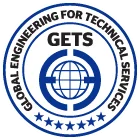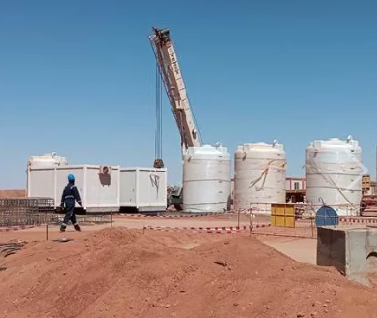Project Description
The Construction of New Camp for Petrofac at Erawin Field is a comprehensive infrastructure project aimed at establishing a modern, fully-equipped accommodation camp for Petrofac’s workforce at the Erawin Field, a key oil and gas production site. This camp is designed to provide safe, comfortable, and functional living and working environments for employees and contractors involved in the field’s operations. The project includes the construction of essential facilities such as living quarters, offices, dining areas, recreational facilities, and utility systems, while adhering to strict safety, environmental, and operational standards.
The camp will serve as a crucial base for Petrofac’s personnel working at Erawin Field, enhancing operational efficiency by providing a self-sufficient and comfortable environment that minimizes downtime, supports project timelines, and ensures the well-being of the workforce.
Project Scope:
The Construction of New Camp for Petrofac at Erawin Field involves multiple phases, from initial site preparation to the final handover. Key activities include the construction of residential facilities, dining and recreational areas, infrastructure such as power, water, and sewage systems, as well as the integration of necessary support services to meet the requirements of a remote operational environment.
Key Components and Activities:
- Site Preparation and Mobilization:
- Site Survey and Assessment: A thorough survey of the Erawin Field is conducted to assess the topography, soil conditions, environmental impact, and access routes. This ensures that the camp is strategically located for ease of access, safety, and minimal disruption to the surrounding area.
- Excavation and Groundwork: Ground preparation, including excavation, grading, and leveling, is carried out to prepare the foundation area for construction. This involves clearing the land, ensuring proper drainage, and stabilizing the site to accommodate the camp infrastructure.
- Access Roads and Infrastructure: Construction of access roads and internal camp pathways for transportation of materials and ease of access for personnel is part of the early-phase groundwork.
- Accommodation Facilities:
- Modular Housing Units: The camp will feature modular accommodation units for Petrofac employees, ensuring comfortable living conditions in a remote environment. These units are designed to be durable, insulated, and equipped with necessary amenities such as air conditioning, heating, and power supply.
- Private and Shared Rooms: The housing units are designed to cater to different needs, including single-occupancy rooms for senior staff and shared rooms for workers. The rooms are furnished with beds, desks, storage space, and communication equipment.
- Restroom and Shower Facilities: Separate restroom and shower blocks will be installed, ensuring high standards of hygiene and comfort for the camp residents. These facilities will include modern plumbing, hot water systems, and proper waste management infrastructure.
- Dining and Recreation Facilities:
- Mess Hall and Kitchen: A fully equipped mess hall will be constructed to serve meals to the camp residents. The kitchen will be designed for large-scale food preparation, with necessary food safety measures and staff facilities. The mess hall will have sufficient seating arrangements for workers and staff to dine comfortably.
- Recreation and Social Areas: To ensure the well-being of workers during off-hours, recreational facilities such as a gym, outdoor sports areas, and entertainment rooms (e.g., lounges, TV areas, internet stations) will be provided. These areas will offer opportunities for relaxation and physical activity, promoting mental and physical health.
- Cafeteria and Snacks: In addition to the main mess hall, smaller cafeteria-style snack bars or break areas may be included to serve quick meals and refreshments during shifts.
- Administrative and Support Services:
- Offices and Meeting Rooms: Administrative offices and meeting rooms will be established for Petrofac’s operational staff and management. These spaces will be equipped with office furniture, communication tools, and necessary IT infrastructure to support daily activities and meetings.
- Conference and Training Facilities: A conference hall or training rooms will be available for workforce training, safety briefings, and meetings. The facility will be equipped with modern audio-visual equipment and be capable of hosting group sessions.
- Storage and Warehouse Facilities: Storage areas will be designated for tools, equipment, and supplies required for camp operations and field activities. Proper inventory management systems will be implemented.
- Utility and Infrastructure Systems:
- Power Supply and Backup Systems: The camp will be equipped with reliable power systems, including main grid connections or on-site power generation (e.g., diesel generators or solar power). Backup power systems will be installed to ensure uninterrupted service during power outages.
- Water Supply and Treatment: A sustainable water supply system will be established, which may include boreholes or connections to local water sources. Water treatment facilities, including filtration and purification systems, will ensure the availability of potable water for drinking, bathing, and other daily needs.
- Sewage and Wastewater Management: A sewage treatment plant (STP) or wastewater management system will be designed and constructed to treat and dispose of wastewater in an environmentally compliant manner. This system will include pipelines, treatment units, and waste disposal systems.
- Waste Management: Comprehensive waste management systems will be put in place, including waste segregation, recycling, and disposal units to ensure the camp operates in an environmentally sustainable manner.
- Safety, Security, and Environmental Considerations:
- Fire Safety: The camp will be equipped with fire prevention and suppression systems, such as fire extinguishers, alarms, and emergency exit routes. Fire drills and safety training will be conducted regularly.
- Security: A secure perimeter will be established with fencing, gates, and security personnel to ensure the safety of residents and the protection of the camp’s assets. Surveillance cameras and lighting will be installed for enhanced security.
- Health and Medical Facilities: A small clinic or medical station will be established within the camp, equipped to handle minor medical issues and emergency situations. Staff will be trained in first aid, and emergency evacuation plans will be in place for serious medical events.
- Environmental Protection: Measures will be implemented to minimize the environmental impact of the camp, including controlling dust, noise, and waste, as well as adhering to environmental regulations. Erosion control and water conservation methods will also be employed.
- Testing, Commissioning, and Handover:
- Quality Control and Inspections: All systems and structures will undergo thorough testing and inspections to ensure compliance with design specifications, safety standards, and quality requirements. This includes plumbing, electrical, HVAC systems, and overall building integrity.
- Commissioning and Handover: Once completed, the camp will be formally handed over to Petrofac after final commissioning checks. Full documentation, including as-built drawings, maintenance manuals, and operation guides, will be provided.
- Training for Camp Staff: Training will be provided for local camp staff, including janitors, security personnel, and maintenance workers, to ensure smooth operations and upkeep of facilities.
Project Objectives:
- Create a Safe and Comfortable Living Environment: Provide Petrofac’s personnel with a high-standard, comfortable, and safe accommodation facility to enhance productivity, job satisfaction, and overall well-being.
- Improve Operational Efficiency: The camp will ensure that the workforce is well-rested, equipped, and prepared to perform operations at Erawin Field with minimal downtime and disruption.
- Comply with Safety and Environmental Standards: Adhere to all relevant safety regulations and environmental standards, ensuring safe working conditions and minimal impact on the surrounding environment.
- Sustainability: Ensure that the camp operates efficiently and sustainably, incorporating energy-saving technologies, waste management systems, and water conservation practices.

